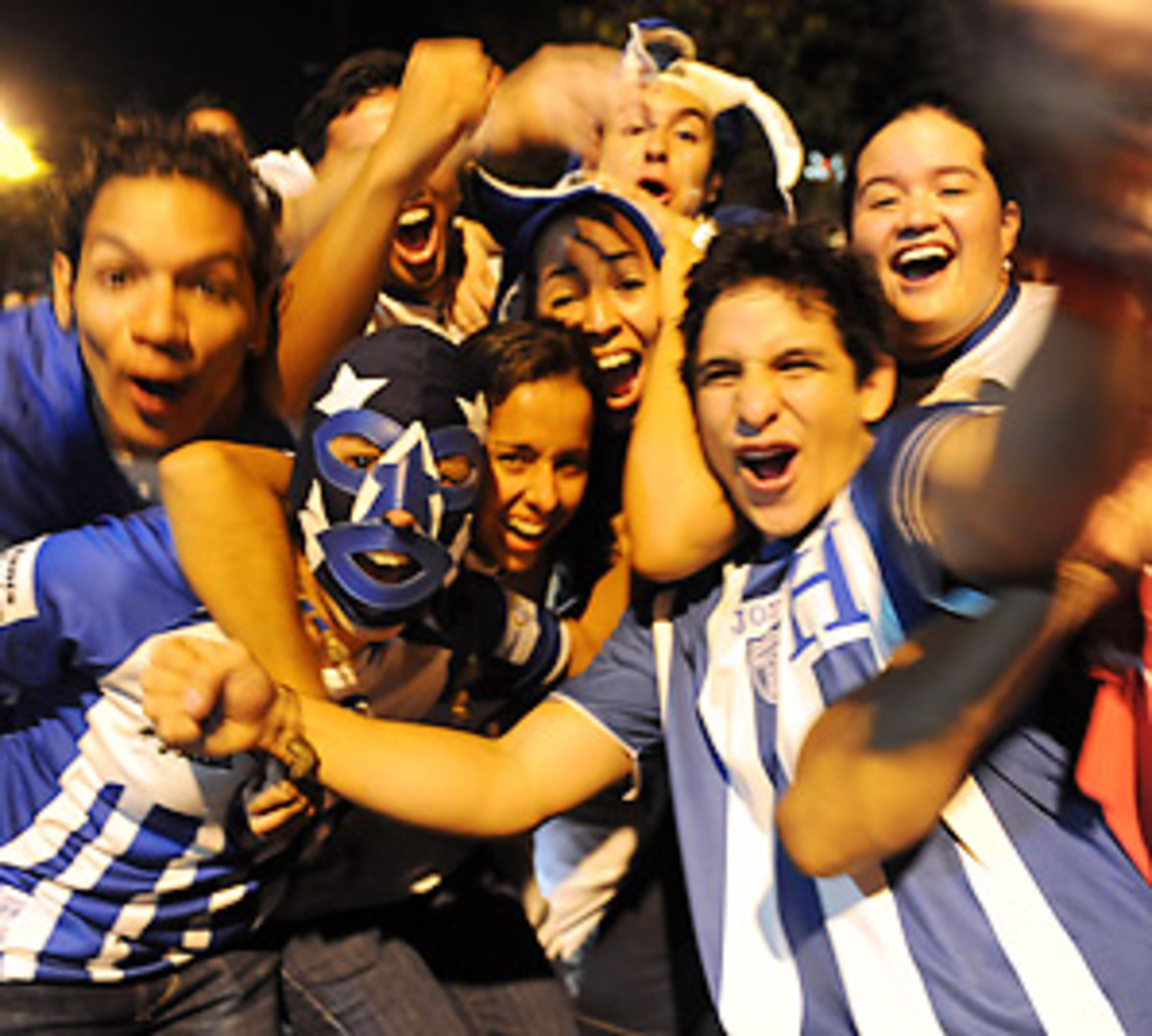Honduras' World Cup success a boon for the country's leaders


Bliss, pure bliss. October 14, 2009, will be remembered for the people of Honduras taking to the streets to celebrate the national team's miraculous qualification for the World Cup in South Africa.
Reinaldo Rueda's men won 1-0 in El Salvador, though until the fourth minute of stoppage time in the match between Costa Rica and the U.S., that score line had not been enough. However, a goal by U.S. defender Jonathan Bornstein gave the Americans a draw and Honduras a ticket to the finals.
Until that moment, Honduras had been the CONCACAF region's king of near misses. The first came when defeat by El Salvador in a playoff in Mexico deprived los Catrachos of a trip to the 1970 World Cup. After two more failures, in '74 and '78, Honduras qualified for Spain '82 and proceeded to shock the world, drawing with the hosts and Northern Ireland, and only losing to Yugoslavia by a controversial penalty.
But it failed to build on that success and became specialists in snatching defeat from the jaws of victory. In '86, Honduras blew the chance to qualify, losing 1-0 at home to Canada after having 25 shots on goal against one from the Canadians. In '02, with Korea/Japan in sight, it suffered another 1-0 home defeat, this time by Trinidad and Tobago, which had not previously won away in the qualifiers.
Fast-forward to the current campaign and it seemed Honduras was ready for another dose of misery. It needed to defeat the U.S. at home in the penultimate group match to qualify but managed to lose 3-2 after legendary striker CarlosPavón missed a penalty and an open goal.
That's why Bornstein's goal in Washington unleashed such an explosion of joy thousands of miles away. The Honduran players hugged and cried together on the pitch at Estadio Cuscatlán, where they had just beaten El Salvador, while millions of their countrymen took to the streets.
But there were other, deeper, reasons behind the celebrations. On July 28, President Manuel Zelaya was toppled by a military coup. Since then, the country has been divided between supporters of the deposed president and those backing Roberto Micheletti, the leader installed by the army.
In recent months, Hondurans have had to endure the suspension of their individual liberties and the introduction of martial law. The country has become an international pariah since the new government is not recognized by any international body. In this atmosphere of extreme tension, the only thing capable of uniting the people has been the national team. World Cup qualification was the country's first good news in ages.
"Our victory will help peace return to Honduras and make people happy after months of tension," said Rueda, the team's Colombian coach. "Thank God the people can celebrate today. Today, all of us are Hondurans."
The celebrations in the streets proved him right. "We are all here, today, nobody has been left out," tearfully claimed Ricardo Martínez, one of the young fans who had filled the streets of San Pedro Sula. "The right, the left, the rebels, the Zelayistas. Today there are no rivalries; viva Honduras!"
However, as often happens in such cases, politicians tried to exploit the sporting triumph of la Bicolor.
"We greatly appreciate the gringos [Americans] for helping us get to the World Cup. They took away our visa, but now they gave it back to us," Micheletti said, referring to the American embargo on his government. His opponents, meanwhile, marched with the slogan "Honduras to South Africa and Zelaya to the Presidency."
Next morning, the players paraded through the streets of the capital, Tegucigalpa, on an open-top bus, among them Tottenham midfielder WilsonPalacios, who was expected back in London. Micheletti had ordered that "all the heroes had to be in the parade" -- an order the player chose not to refuse.
The bus was diverted to pass in front of the presidential palace where Micheletti waited to be photographed with the players. "We had no clue we were going there," said defender Danilo Turcios. "We thought we were going to church." Meanwhile, Flor Guevara, mother of team captain Amado Guevara and fervent follower of Zelaya, gave her son's shirt to the deposed leader, who was immediately photographed wearing it.
But to the bulk of the population, the World Cup appears to be much more important than the political situation. Óscar Salgado, a respected Honduran coach, said, "If you ask 10 people if they prefer to talk about football or politics, nine of them will say football. Going to South Africa has almost made us forget our political problems."
This article originally appeared in the December 2009 issue of World Soccer magazine. To subscribe, click here.
